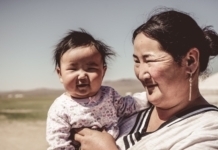Picture the following scenario: A girl gets sent to the best school in Shanghai; then to the best university there; then does a master’s in Melbourne, Australia. After graduation in Australia, she sends out forty resumes to companies there without a single reply.
Frustrated, she emails me the resume. On the top of the resume it has her name: Echo. Not Echo Wang. Just Echo.
Then there was the guy a couple of years ago, a student of mine, who called himself Zero. I remember, on the day he came back empty-handed from the visa section of the US Consulate in Shanghai, reminding that “Hi. I’m Zero” wouldn’t exactly be endearing.
Then there was the young woman in Wuhu, Anhui who introduced herself to me as Alan. “You mean Ellen?” “No, Alan”. When I told her that Alan was a man’s name she said: “Yes, I know. But I just like it”.
I used to know a guy in town going by the name of Unicorn. Then there was the kid I met at a high school in rural Jiangsu and who had given himself ‘Too Much” (a name that surely speaks for itself).
I met a man recently who is (or was until I gave him what for) using the name Parmyty. When I sought clarification about this strange name – I’d never heard of anyone called Parmyty – he said, proudly, it was an anagram of My Party.
I have a student calling himself Eleven. And so on.
Enough, already!
It’s often hard to explain to the Chinese quite how commercially-catastrophic some of these name selections are. I’d love to be a fly-on-the-wall on the day Parmyty goes to London for his first business meeting, wouldn’t you? Imagine having to explain that one.
The whole problem of “names” in China stems from an error of logic that occurs when the Chinese compare “their” names to “ours”.
In China, names have a meaning. Typically, the Chinese names given to children have a meaning. The meaning might be aspirational – for instance, my friend’s name is Gao Fei: Gao, the character for “high”, being the surname and Fei, as in “fly”, the given name.
Or, as in some of the older names, they might be carrying a nationalistic sentiment. For example, my brother-and-sister friends “Jian Guo” and “Jian Ping” (respectively, “building a nation” and “building peace”).
As I understand it, these types of “red” names have somewhat fallen out of fashion these days and are rarely used for new-borns.
Or the name might be derived from something to do with the birth itself – to wit, the name “Morning Bird” is common here for children born at or around dawn (or before the street-vendors kick-off, whichever comes first).
The point is that Chinese names have, from whatever basis, a meaning. They’re not like English names. English names don’t have a meaning. OK, English names do have a derivation; my own name derives from the Anglo-Saxon days and means “loved by the gods” (in my case, a spectacularly inappropriate description, I might add). But, by-and-large, we English-speakers just name our kids because we like the sound of it. Or, if not that exactly, then there are “family names” that keep appearing from one generation to the next.
The error of logic many Chinese (not all, by any means) make when choosing an English name is this: if English names have no meaning then, surely, anything goes. That, in its simplicity, is the logical flaw creating all these strange “English” names here. The thought-process is something like: “My English name won’t carry any meaning so I can just choose whatever I like, right?” Wrong.
This wouldn’t matter, none of it would really matter, if there wasn’t so much at stake. Many young Chinese who adopt English names are doing so in preparation for overseas study and which, given the low-return rates of overseas students, means life overseas, all of which has been financed by drawing heavily on the broader family’s resources.
For these students going overseas and intending to get work after graduation, with names like Echo, Apple, Zero or Unicorn they’re already weighted in the direction of the unemployment queue before they even start. Emilys can send out forty resumes in Australia and will get at least some responses. Echos will get none. Claires will get interviews. Apples won’t. Jessicas will, in many cases, get the jobs they want in Sydney or London but, alas, there will be none for Unicorn.













